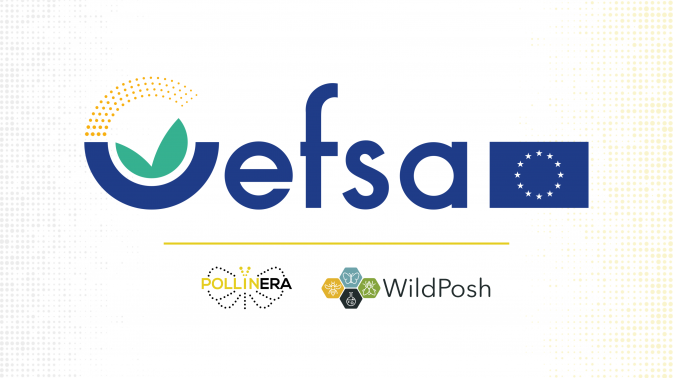The new pollinator project duo, PollinERA and WildPosh, presented at EFSA KIC meeting

Recently, project coordinator Prof. Christopher John Topping (The Social-Ecological Systems Simulation (SESS) Centre, Aarhus University) introduced the PollinERA project at the European Food Safety Authority (EFSA) KIC meeting.
In an effort to restore biodiversity and safeguard ecosystems and their functions, the European Executive Agency (REA) has funded two new research projects, PollinERA and WildPosh, under the Horizon Europe framework. Both projects share a common ambition: to provide a better understanding of the exposure routes and toxicological and ecological impacts of chemical pollution on terrestrial biodiversity and ecosystems. To maximise impact and ensure the sustainability of results, the two projects will unfold in close collaboration, including joint communication activities and events, joint data management strategy and alignment of activities to solidify the quality of final outputs.
During a recent EFSA KIC meeting, both projects were introduced to a broad audience, comprising EFSA members and external stakeholders. With over fifty attendees from various backgrounds, the meeting underscored the importance of collaborative endeavours in tackling environmental issues. Project coordinators Prof. Christopher J. Topping (PollinERA) and Denis Michez (WildPosh) delivered in-depth presentations elucidating the aims and objectives of the respective projects.
Researchers working within several complementary projects (PARC, Syberac, TerraChem, PollinERA, WildPosh and PERA), agree that enabling cross-pollinator project interactions can build and strengthen the ERA community, helping to collaboratively advance systems-based approaches for risk assessment of PPPs/chemicals. They also highlight the importance of coordination and alignment in engagement and dissemination activities. For instance, to streamline engagement activities and optimise interactions with relevant stakeholders, PollinERA and WildPosh have opted to create a joint engagement calendar. This collaborative approach seeks to leverage existing EFSA-related engagement activities, which provide valuable opportunities for project partners and scientists to connect with the wider Environmental Risk Assessment (ERA) community.
More about EFSA:
EFSA is an agency of the European Union set up in 2002 to serve as an impartial source of scientific advice to risk managers and to communicate risks associated with the food chain. They cooperate with interested parties to promote the coherence of EU scientific advice and provide the scientific basis for laws and regulations to protect European consumers from food-related risks – from farm to fork.